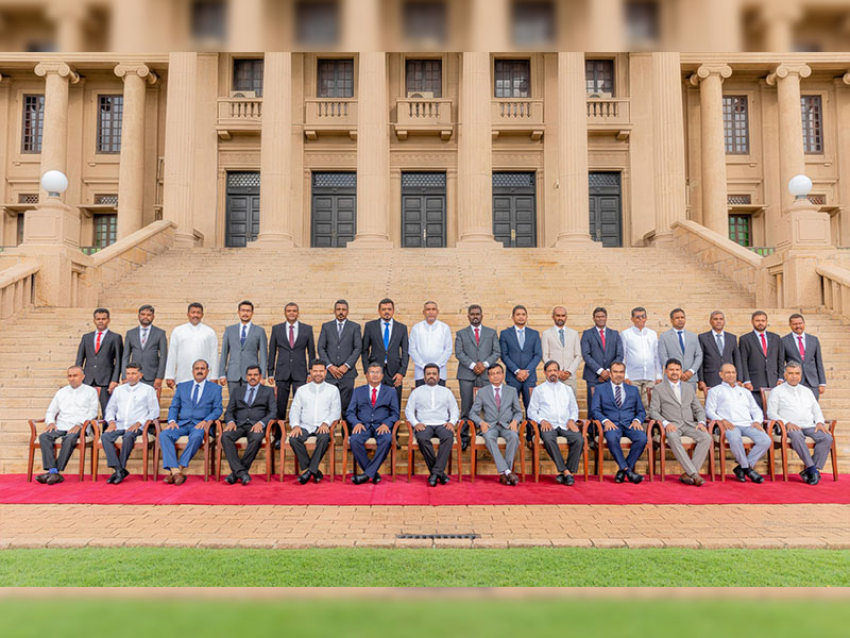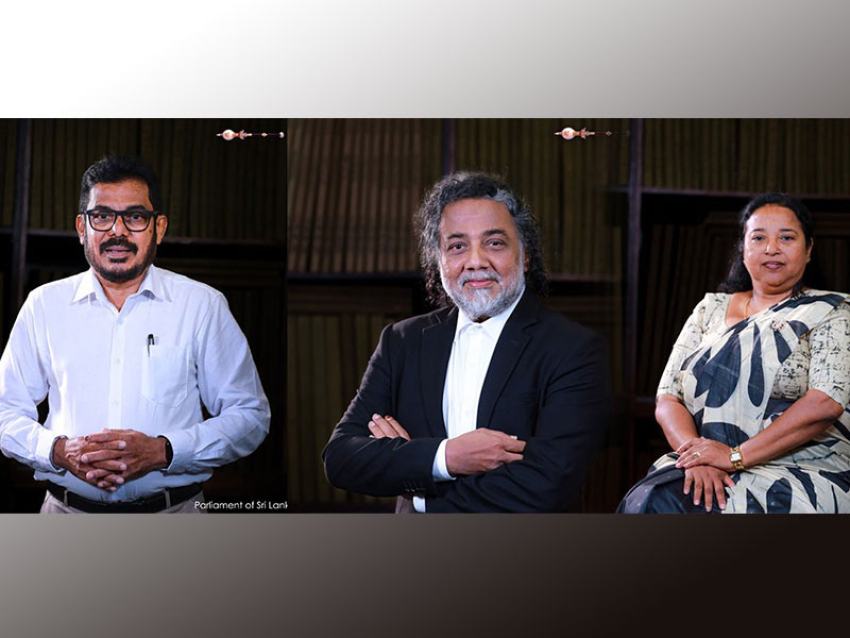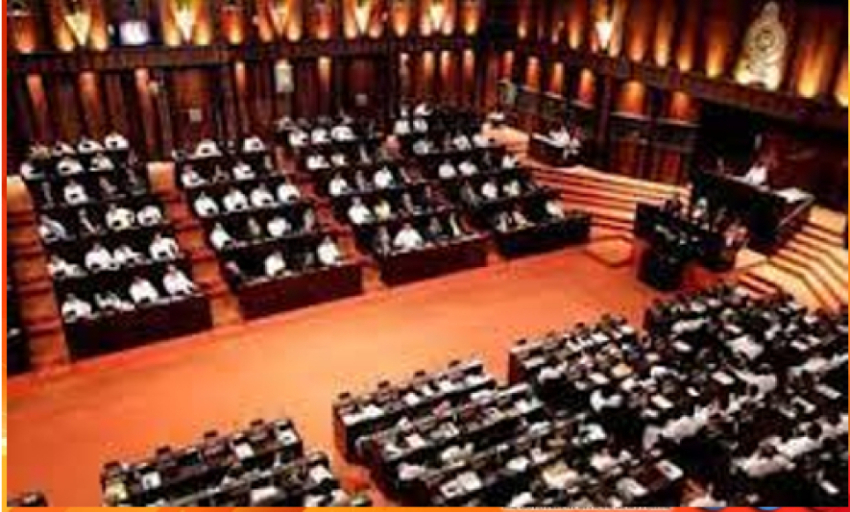To coincide with this momentous occasion, Commander of the Navy, Vice Admiral Nishantha Ulugetenne today promoted 1729 naval personnel from different ratings to their next higher rate.
As part of the anniversary celebrations, a wide range of events are being held in every naval command , giving prominence to time-honoured naval traditions and religious events, under the directives and guidance of Commander of the Navy, Vice Admiral Nishantha Ulugetenne. On the sidelines of these celebrations, capital ships of the Sri Lanka Navy will be brought to the anchorage off the Galle Face Green, from 09th to 13th December, with a view to reach the general public with better awareness of the Navy. The central theme of this exhibition is ‘Know Your Navy’ and ‘This is Your Navy’.
Commencing the religious segment of the 70th anniversary celebrations the ‘Kanchuka Puja’ and ‘Flag Blessing’ ceremony were held at the Ruwanwelisaya and sacred Jaya Sri Maha Bodhi in Anuradhapura on 12th and 13th November. During the ceremony, 87 flags including the National Flag, Buddhist Flag, Naval Ensign and flags of naval commands, establishments, ships and craft received the blessings of the sacred Jaya Sri Maha Bodhi.
Meanwhile, permissible drink (Gilanpasa) offering was held at the Temple of the Sacred Tooth Relic in Kandy on 08th December. This morning (09th December), ‘Buddha Puja’ was offered for Sacred Tooth Relic at the temple premises after which Commander of the Navy called on the Mahanayake Theros of Malwathu and Asgiri Chapters as well. Meanwhile, mid-day alms for the members of Maha Sangha has also been arranged as part of the series of religious proceedings.
Further, an all-night Prith chanting has been organized on 27th December to transfer merits on fallen naval war heroes and invoke blessings on incumbent Commander of the Navy and every member of the naval family. This meritorious event will be followed by an alms giving for 70 members of Maha Sangha, on 28th December. The remaining religious events of other faiths are set to be held at St. Lucia's Cathedral, Colombo, Fort Jummah Masjid, Chatham Street and Shri Ponnambalawaneswaram Kovil, Colombo. All these programmes are carried out with the participation of a limited number of naval personnel following all the health guidelines and procedures given to prevent the spread of the novel coronavirus.
Looking back at the glowing history of Sri Lanka's evolution, it reveals that Sri Lanka has had a progressively developed naval force that has been able to withstand foreign influences since the third century BC. History shows that by the 12th century, the islanders’ naval power had grown to the point where it could even challenge neighboring nations. Thus, the seafaring force of the present day can truly rejoice in the legacy left behind by its lineage.
With the outbreak of World War II, the Ceylon Volunteer Naval Force, established by the Volunteer Navy Ordinance No. 1 of 1937, marked the beginning of a navy for the country, as a result of its focus on strengthening maritime security in every British colony. The Navy Act No. 34 of 1950 marked the beginning of the Regular Naval Force of Sri Lanka with the establishment of the Royal Ceylon Navy on 09th December 1950. The Royal Ceylon Navy, which has grown steadily since then, became the Sri Lanka Navy on 22nd May 1972 when the country became a republic.
In the backdrop of terrorist activities started by the LTTE in early 1980s, the Navy, which had hitherto been in charge of ceremonial duties, turned into full-fledged operations.
The Navy, which helped the eradication of terrorism on 18th May 2009 in a humanitarian operation, bringing an end to the destructive war, is now shouldering the post-war mission of nation building. Further, the responsibility of provision of security for ports as well as sea lanes of communication, protection of marine resources and marine ecosystems in the Exclusive Economic Zone, which is seven times of the landmass of Sri Lanka, enforcement of maritime law in island’s as well as international waters, creation of better the marine environment to meet national needs in line with foreign policy and national security objectives lies with nothing but Sri Lanka Navy. In doing so the three major roles envisaged for the Sri Lanka Navy expand into the spheres of Military, Diplomatic and Constabulary.
Even if there is no visible enemy at present, the Navy, popularly known as the First Line of Defence, is geared by all means to curb wide-ranging nefarious acts such as piracy, maritime terrorism, drug trafficking, arms smuggling, human trafficking, illegal unreported and unregulated fishing, and marine pollution that have a major impact on maritime security and its healthy environment. Thereby the sea-going arm of the nation conducts regular day and night patrols at maritime boundaries to protect the island's first territorial frontiers, utilizing the Navy's resources and manpower with maximum productivity and efficiency.




















